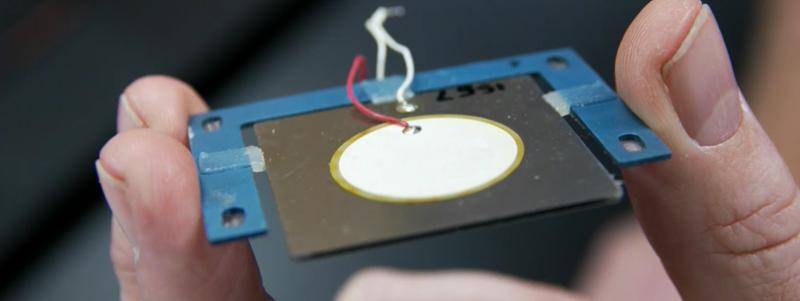This article is more than 1 year old
GE boffins build micro-lungs to cool PC innards
Puffing piezoelectronics outpace fatter fans
Researchers at General Electric has developed a new air-cooling system based on human lungs that's half the size of conventional computer fans but just as effective at keeping things chilly.
The prototype uses 40mm by 40mm thin metal plates which are bonded to ceramic piezoelectronics, dubbed Dual Piezoelectric Cooling Jets (DCJ), that flex like bellows when AC current is applied. The 1mm-thick micro-lungs vibrate at between 100 and 175 hertz, producing a 1mm-wide jet of air coming in and out of the device.
As turbulence flows off the sides of the stream, the cooling area is greatly increased and the speed of the jet is such that the same air isn’t reused. The team demonstrated the system by using it to cool what looks like a Lenovo X1 Carbon Ultrabook, and they say the new system uses less than half the battery power of a conventional fan that's double its width.
The prototype design can cool up to 12-18W and uses less than 240mW to do so, and lack of a DC motor or bearings means it may well last longer, Peter deBock, GE electronics cooling researcher, told The Register. It's also quieter, and the frequency of breaths can be adjusted to suit cooling and manufacturing requirements.
But the interior of a PC case can get pretty dusty, and the enclosed nature of the design looks like it could clog up like the lungs of a chain-smoker. The team tested this, however, and it appears that the air velocity is such that the casing stays clean.
"We tested the devices in Mil-STD-810G sand and dust testing environment. They were blasted with really fine grain dust from many different angles," he said. "After four days we had all six devices still working with no problems."
Obviously this kind of system would work well in the tablet and Ultrabook markets, and anywhere else where size counts. But GE isn’t going to be getting into that business, and has licensed the system to Japanese thermal systems builder Fujikura. ®

